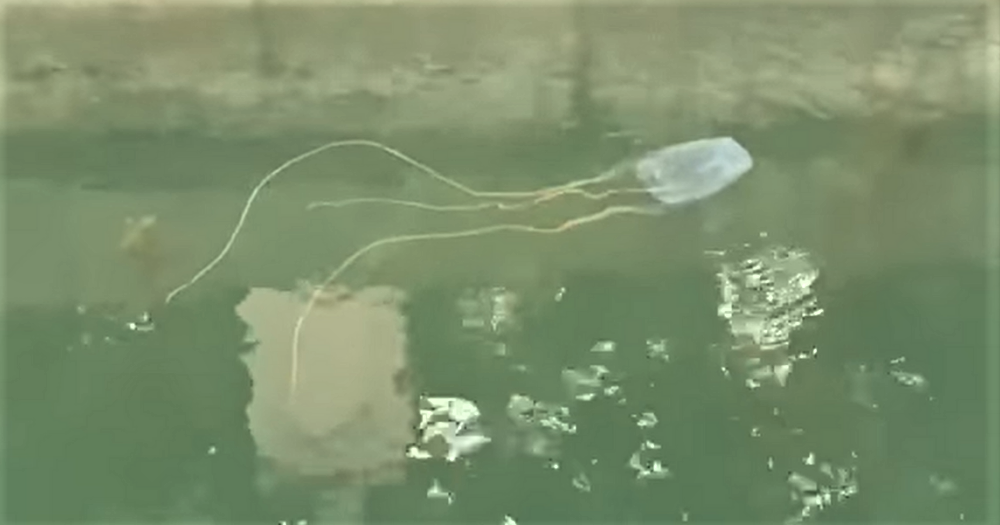A highly venomous box jellyfish was spotted in the waters around Sentosa Cove yesterday (July 3), at One Degree 15 Marina.
A video of the jellyfish was uploaded to Facebook by Marine Stewards, a nonprofit group that promotes marine conservation in Singapore.
The group also advised members of the public to be careful and to avoid swimming in Sentosa during these two weeks.
Box jellyfish stings can be fatal to humans
According to a statement from National Parks Board (NParks) in response to a media query from Mothership, Karenne Tun, the Director of Coastal and Marine at National Biodiversity Centre, highlighted that the agency is aware of the sighting.
Tun also added that box jellyfish are highly venomous.
This is due to their deadly toxin, which helps them to instantly kill or stun their prey, like fish or shrimp, thus reducing the damage to their tentacles, according to National Geographic.
Tun also added that a sting from the box jellyfish is extremely painful and can cause severe hypertension, extreme lower back pain, nausea, cardiac and respiratory arrest.
It can also be fatal.
The agency advised that if one is stung by a jellyfish, one should rinse the affected area with seawater or vinegar and not try to remove the tentacles, and seek medical attention immediately.
Do not handle box jellyfish directly: NParks
NParks is currently working with relevant stakeholders, such as the academic, boating and recreational communities, as well as agencies whose staff work in and around the coastal waters where the jellyfish was sighted.
Tun added that the agency is working with academic partners from the National University of Singapore to collect water samples from various coastal areas to conduct DNA analysis, and to help detect the presence of the species in these areas.
If a member of the public spots a box jellyfish in local waters, they should the NParks helpline at 1800-471-7300, and not handle the jellyfish directly.
You can check out the post by Marine Stewards here:
Top screenshots via Marine Stewards' video on FB
If you like what you read, follow us on Facebook, Instagram, Twitter and Telegram to get the latest updates.
